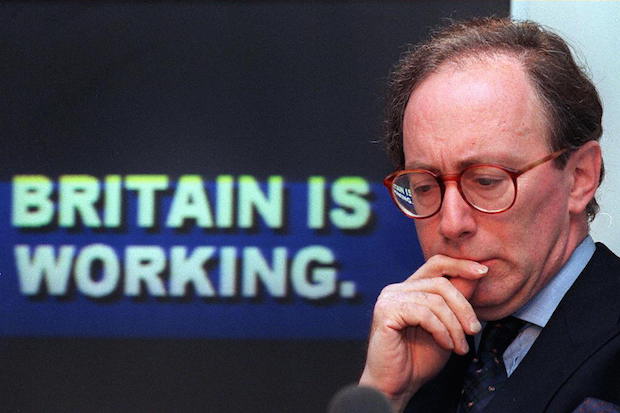For years I saw Malcolm Rifkind as an unusually principled politician, one of the very best and brightest talents in the Conservative Party. After the rout of Scottish Tories in 1997, he decided to stay and fight for his old seat, Edinburgh Pentlands, rather than follow Michael Forsyth and Ian Lang along the high road to the House of Lords.
I was working covering Scottish politics for The Times then, and during the 2001 campaign I had a chance to see how hard he worked at at a time where he had little national profile. He was giving his all, fighting for Scotland at a time when his party had pretty much given up on it. Had 900 people voted a different way in Edinburgh, he would have succeeded in fighting his way back to parliament in 2001. It would have been an incredible comeback.
Stature, grit, oratory, courage — I became quite a Malky fan, and saw him as a potential Tory leader. As did he: when he came back in the 2005 election, he stood against David Cameron. But when he lost, and Cameron refused to make him shadow foreign secretary, he went into a huff.
This, I thought, was unforgivable. After he failed to make the shortlist in Windsor his party had helped him back to one of the most enviable perches in politics – the gorgeous seat of Kensington & Chelsea, a few minutes from Westminster, so he could throw himself into politics without any long commutes. And he still refused to lend his significant skills to a party that was (and remains) badly in need of them. In the Telegraph sting recording, he seemed to have so little regard for his job as an MP that he forgot about it – and the £67,060 pay packet that comes with it. He told Dispatches:
‘I am self-employed – so nobody pays me a salary’
That would be news to the constituents he has supposedly been working for. Worse, yesterday, he said that MPs need to be able to take cash from consultancy jobs otherwise:
‘They just won’t come to the House of Commons at all and Parliament will lose their skills.’
But his party did allow him to take such jobs, and it still lost his skills. Sure, he chaired the MPs’ Intelligence & Security Committee — but his party needed him on the front bench, in whatever role is leader thought appropriate.
So for Malky’s fans, the tragedy is not that his second stint in parliament is now over. The tragedy is that it never really began.
One final thing. His claim that most people from 'business or professional' backgrounds earn way more than £67,060 is just wrong. He was a solicitor before entering parliament; well, the average solicitor is on about £42,000. He told Ch4, that an MP's salary of £67,00...
‘…sounds a lot to a lot of people earning less than that but as you will be well aware Jon, the vast majority of people of a business or professional background earn far, far more than that’ Set aside the fact that he was anyway earning £250k on the side. Here’s a list of what various professionals earn, as drawn from tax data. The average for some jobs may be a bit above what an MP earns, but it’s not ‘far, far more’ and not for most. Factor in the long holidays, and I’m not sure what Sir Malcolm has to complain about.
[datawrapper chart="http://static.spectator.co.uk/vQenM/index.html"]
More on Malky:
- Malcolm Rifkind quits as ISC chair and will stand down at next election
- Kirstie Allsopp comes to Sir Malcolm Rifkind’s defence
The era of stable government is over
Join us on 23 March for a Spectator discussion on whether the era of stable government is over with Matthew Parris, James Forsyth, Jeremy Browne MP, Vernon Bogdanor and Matthew Goodwin. The event will be chaired by Andrew Neil. In association with Seven Investment Management. For tickets and further information click here.







Comments